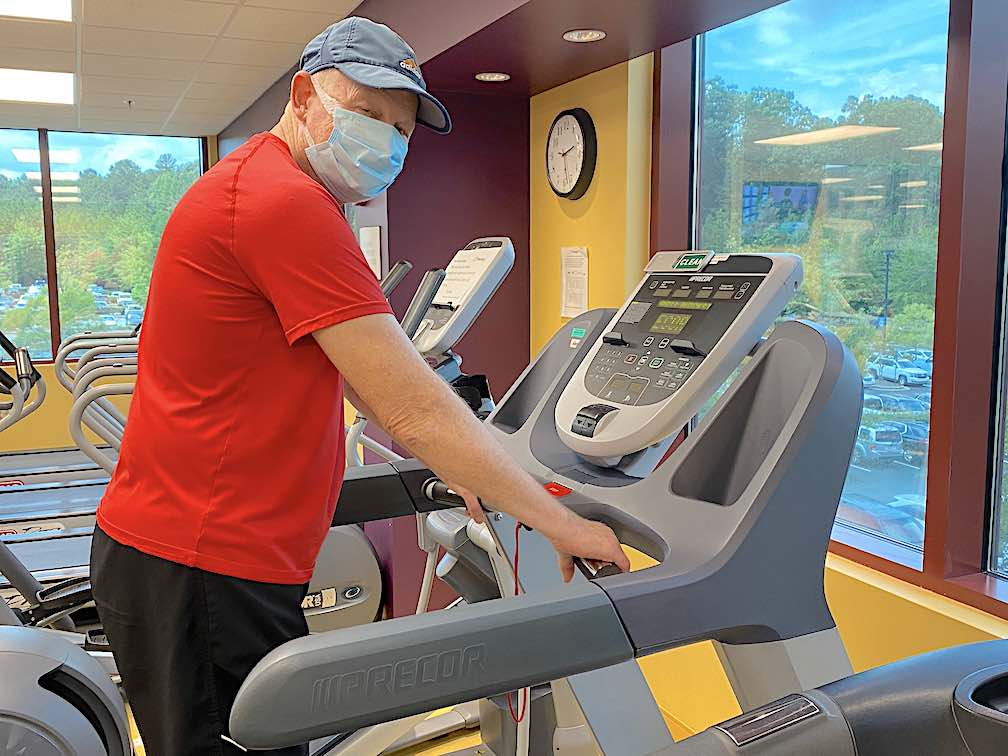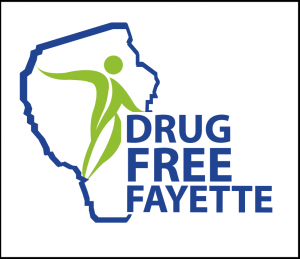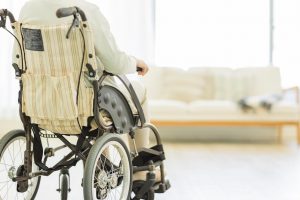When Kurt Zeiger collapsed on a tennis court at the Peachtree City Tennis Center in May, separate teams sprang into action culminating in a coordinated effort that saved the 67-year old’s life.
Zeiger and his wife, Carrie, credit the staffs of both Piedmont Fayette Hospital and Piedmont Atlanta Hospital, as well as the county EMS and the tennis center staff with acting quickly and decisively during an extremely critical situation.
Zeiger’s family has a history of heart issues. When his brother died at the age of 37, Zeiger started seeing a cardiologist every six months. Everything looked good when he made his last visit in January, but doctors think a piece of plaque may have broken off and blocked a major artery.
On May 29, Zeiger had played four games of tennis and was ready to serve the next point when he collapsed. Jonathan Fralick, the general manager of the tennis center, ran to Zeiger with the Automated External Defibrillator (AED), and administered a shock and began CPR.
EMS arrived soon afterwards, gave Zeiger a shot of adrenaline to his marrow, and took him to Piedmont Fayette, calling ahead to the emergency department and letting them know of the situation.
“We knew EMS was bringing us a very sick patient. We had everything ready, starting him on pressor, which is a medical intervention to boost blood pressure, intubated him and took him to the cath lab,” said Tesfaye Telila, M.D., an interventional cardiologist practicing at Piedmont Fayette. “It soon became clear that he would need additional hemodynamic support so we started him on the Impella machine.”
Impella is a temporary mechanical hemodynamic support device that assists the heart in patients with cardiogenic shock (worst form of heart attack). It takes blood from the left ventricle and brings it to the aorta to distribute blood throughout the body.
Dr. Telila helped launch the Impella program at Piedmont Fayette in May 2019. The use of the Impella device bought the doctors some time to open blockages and transport Zeiger to Piedmont Atlanta where he remained intubated and in intensive care for two weeks.
“They weren’t sure that Kurt would be able to breathe on his own without the ventilator and we had to rely on phone calls from the doctors for updates because we couldn’t visit due to the pandemic,” said Carrie. “We got a call telling us they extubated him and that he was doing great. It was a miracle. We had a Zoom call with Kurt later that day and he was cracking jokes.”
Zeiger spent two more weeks in the hospital before going home and starting physical and occupational therapy. He recently began the cardiac rehab program at Piedmont Fayette and is excited to be working out again. He is walking two miles a day and hopes to return to the tennis courts this fall. Looking back, both he and his wife can see how everything fell into place just right to keep him alive.
“If I didn’t insist on playing tennis that day because rain had kept me from playing for several days and if they didn’t have the AED there and know what to do with it, if EMS arrived just a few minutes later, if Piedmont Fayette didn’t have the Impella device …,” Zeiger said. “We’re just very grateful for the care I received.”
Piedmont Fayette started performing percutaneous coronary intervention, which involves opening up blood vessels in the heart with a stent, only 10 years ago. When they were confronted with patients like Zeiger, they would have been unable to provide the immediate care that he needed. The advances at Piedmont Fayette play a significant role in improved outcomes for cardiology patients, but Dr. Telila added that the care before arriving at the hospital is vitally important as well.
“It’s important for everyone to know what cardiac arrest is, when to begin hands only CPR and how to use an AED,” said Dr. Telila. “With Mr. Zeiger, every step of the way, everyone knew what to do and did the right thing. For us, healthcare workers, there is really nothing more gratifying than seeing our patients fully recover from the brink of death and that obviously comes with a lot of responsibilities and requires great teamwork”.
Piedmont Fayette recently received the American College of Cardiology’s NCDR Chest Pain – MI Registry Platinum Performance Achievement Award for the seventh straight year. It is one of only 140 hospitals nationwide to receive the honor. The award recognizes Piedmont Fayette’s commitment and success in implementing a higher standard of care for heart attack patients.
“The coordinated efforts of our amazing physicians, nurses, and staff members, and our partners in emergency services, around treating heart attacks has saved thousands of lives in this community,” said Steve Porter, CEO of Piedmont Fayette. “I am incredibly proud of this fantastic team and the work they do every day.”
To learn more about cardiology services at Piedmont, visit piedmont.org/heart. — Story By Michael Boylan, Piedmont Fayette Hospital.











Leave a Comment
You must be logged in to post a comment.